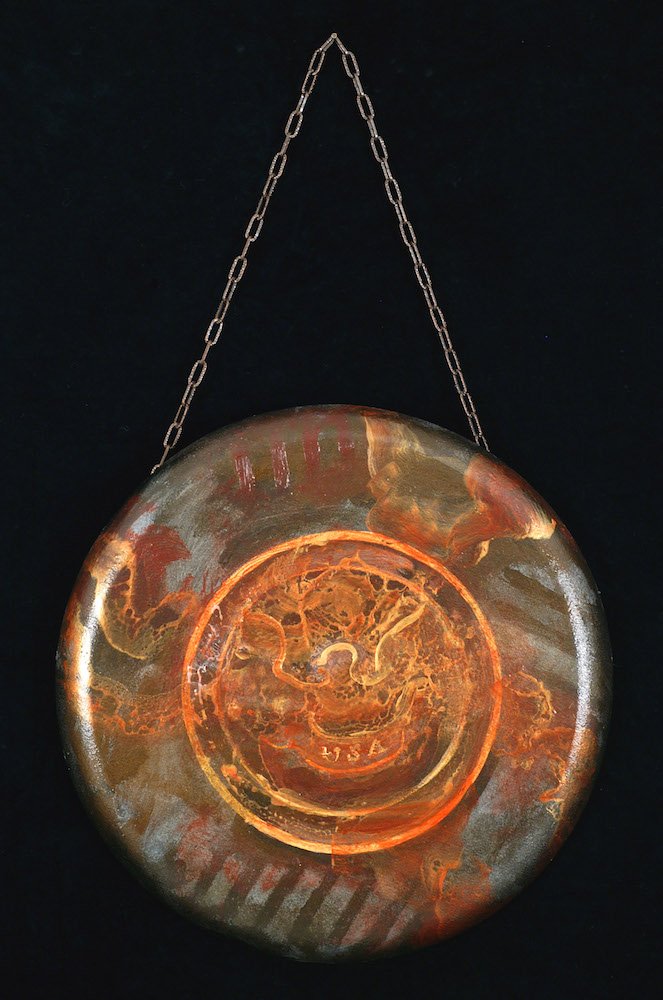Kabbalah of Bling - Yona Verwer
Large-scale canvas artworks shaped as amulets, suspended on chains and designed to be worn like oversized jewelry, echoing rappers' bling. These pieces critique the cultural appropriation of ancient mystical symbols by pop celebrities.
Click on the images for full view
Protection Amulet Pewter, Acrylic on Canvas,
Protection Amulet Gold, Acrylic on Canvas,
In God We Trust - Copper, Acrylic on Canvas
In God We Trust - Gold, Acrylic on Canvas
Star Amulet, Acrylic on Canvas,
For mainstream America, Kabbalah is religion, Madonna style. Or it's the red string bracelet Britney Spears wore to ward off the evil eye. This type of Kabbalah is taken out of context to fit a New Age philosophy.
For centuries amulets have been used as heavenly appeals for safety, health, wealth and power. The amulets often carried prayers and names to call upon for assistance. They gave the bearer "personal magic" to invoke a higher power to intercede. The Kabbalists used amulets and they are mentioned in the Mishna and Talmud. They were treated with complete seriousness as instruments for intervening in the natural course of events.
Hollywood Kabbalah is a watered down, altered version. Serious Kabbalists say that everything relies on context. It can't just be taken apart and reshuffled for easy consumption. New Age offers instant mystical knowledge, which can be purchased with magical objects such as red bracelets, holy water etc. Certain Kabbalah centers offer classes in which students for a large fee can acquire the “master” title.
Many contemporary individuals experience reality through the filters of prosperity or need. They rely on different types of talismans: worshipping guns, drugs, money for their personal and social well-being, denying the need for divine guidance. In this "spiritual materialism," spirituality is used for material gain or raising status. The use of spirituality to increase the power of the ego and identity prevent the seeker to open up to unknown mysteries, which are the goal of the mystical path.
These paintings reflect on a contemporary concept of self-reliance and the faux spirituality found in the worship of objects for their own value. As Ori Z. Soltes wrote: “Verwer’s Kabbalah of Bling series is intended to merge the deeply spiritual with the banal (“Kabbalah” and “Bling” should ordinarily be mutually contradictory)”.




